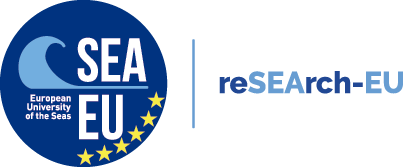Open Science Training sessions for PhD students
The training sessions took place online from the 6th to the 24th of October and were offered to all PhD students from the Brittany region and from across SEA-EU. A total of 30 PhD students participated in activities.
The objectives of the training were for PhD students to gain an overall awareness of the key impacts of Open Science on their research activities and potential academic careers, as well as the tools and ressources at their disposal.
The training sessions covered the basis of Open Science and Participatory Science. They also introduced good research practices related to research in the framework of Open Science.
The training took place across 3 online sessions.
The first training session, provided by Gemma Davies, focused on Open Science, Open Access, Metadata in publications, Stakes and objectifs of research data, Scientific integrity, ownership of Data, the legal context of open data, Repositories and Licences.

The second session’s objectives were to co-construct an Open Science strategy/approach based on the research work of the various participants.
Based on a concrete example of the implementation of an Open Science approach within a multidisciplinary research project. In particular, the importance of participatory science and the issues involved.
The course took place online on October 12th, provided by Edna Hernandez, and was geared towards, Doctoral students, especially working in the fields of Humanities and Social Sciences or with a multidisciplinary practice, from all the doctoral colleges in Brittany and SEA-EU.

The third and last session took place on the 24th of october and was provided by Tanguy Haute
and focused on building an Open Science strategy/approach based on the research work of the
various participants With the help of various examples from different fields, they were able to differentiate
between good and bad methods in the context of open science and also look at some participatory science applications.

Edna Hernández González is an architect-urban planner and lecturer at the Institute of Geoarchitecture, at the Unviersity of Bretagne Occidentale, and assistant director of lab EA Her work focuses on the urban planning at night-time, particularly the link between the urban lighting and human night activities and their impact on the environment. She takes account of the gender practice of urban space and the experience of walking by night in French and Mexican cities.
Since 2012, she has been an active member of the Transversal Research Group “Pedestrian Urban Mobility” (Labex Urban Futures, GT MU, Gustave Eiffel University). Since 2016, she has been a delegate of the Institute of the Americas in Brest (IDA-Brest). She is a founding member of the Research Network « Estudios sobre la noche » in 2020. Actually she leads three research projects : Chair person for « Noz Breizh » (scientific consortium 60 K€ budget per year for three years), « Noz Num : Marcher en ville la nuit » (founding by MSBH), « Smart Noz » (founding by Région Bretagne).
Tanguy Haute joined the UMR1078 Genetics, Functional Genomics and Biotechnologies research unit in September 2019 as an assistant engineer and more specifically in the Gene Transfer and Combined therapeutic Approaches team after obtaining a master’s degree in Genetics, Genomics and Biotechnologies He is also responsible for quality management on the SynNanoVect platform and works on the optimisation of nanoparticles for aerosol delivery of siRNA to lung metastases from paediatric bone cancer.
Gemma Davies is a project engineer within the department for research at the University of Brest. Her missions have expanded into open science and she collaborates closely with the university’s library. She has a scientific background in Chemistry and statistics. SheI worked as a research assistant carrying out data processing and statistical analyses but also copy editions in English for research papers. This gave her hands-on experience with data management at a researcher level, so she understands their work and can easily put herself in their position for understanding their need for resources and potential difficulties.
Participants were encouraged to reach out to the Open Science Ambassadors, Data Protection Officer and Open Research Data Officers of the university should they require any further information.
Contact details for any follow-up questions or inquiries :
- Gemma Davies, ORDO for UBO : gemma.davies@univ-brest.fr
- Tanguy Haute, OSA for UBO : tanguy.haute@univ-brest.fr
- Edna Hernadez, OSA for UBO : edna.hernandez@univ-brest.fr
